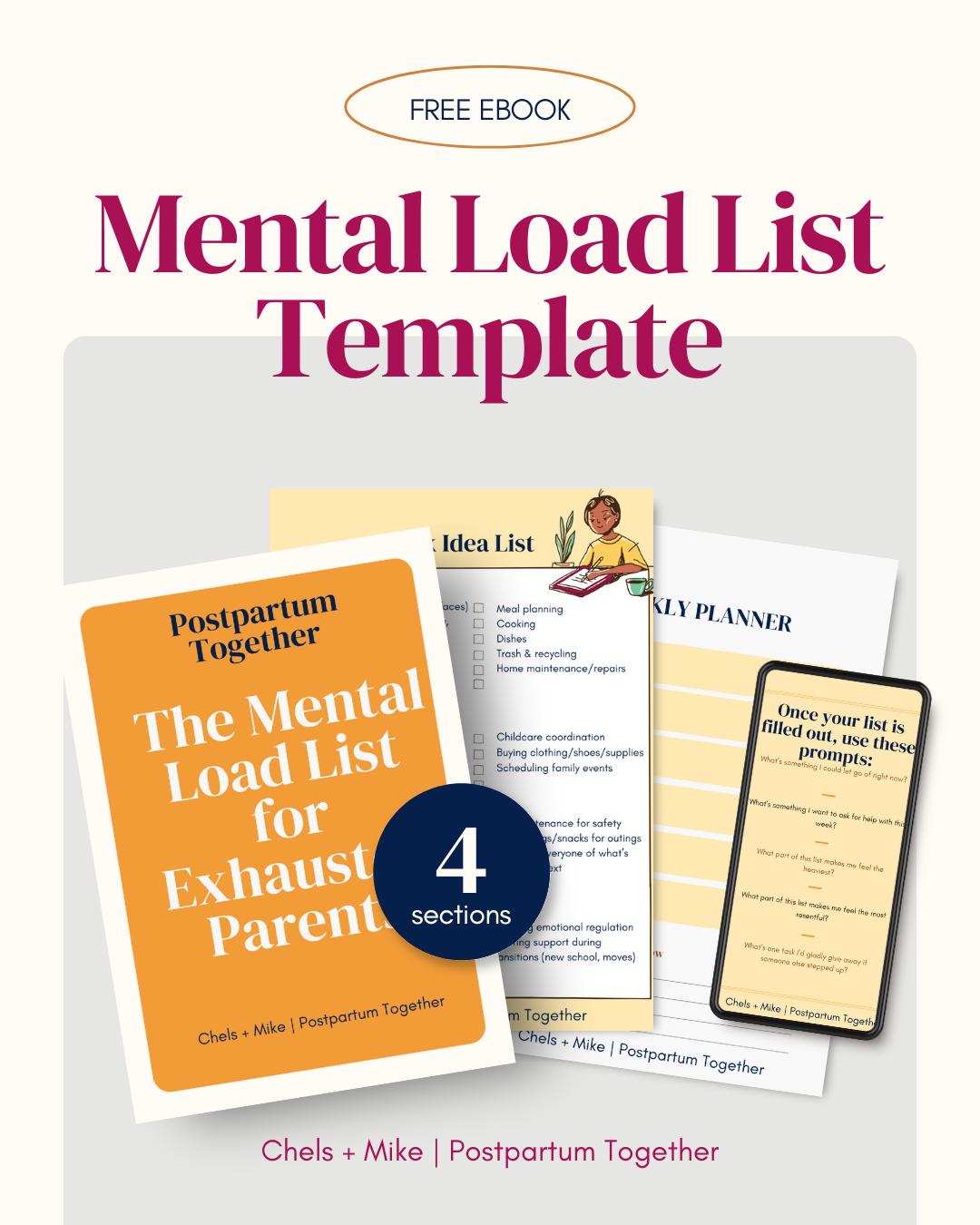3 Things to Ask Yourself If You’re Carrying Most of the Mental Load
You’re folding laundry while mentally ordering groceries, rescheduling the dentist, remembering who needs sunscreen for field day, and wondering why your partner is chilling on the couch yet again.
You’re not just tired. You’re carrying the mental load.
In modern families, especially with two working parents and young kids, it’s shockingly common for one partner (often mom) to carry the invisible responsibilities that keep life running. And if you’ve ever asked yourself, “Am I just overthinking everything, or am I actually doing way more?”—this post is for you.
Let’s unpack it.
What Is the Mental Load? (And What Does It Look Like?)
If you’ve never heard the term before, the mental load refers to the ongoing, invisible labor involved in managing a household and family. It’s the behind-the-scenes orchestration, remembering, noticing, planning, and emotionally managing.
It’s not just doing the dishes, it’s realizing the dishwasher tabs are low, remembering to buy more, and mentally noting that one kid won’t eat with the “scratchy” fork, so you dig through the drawer for the smooth one.
Mental Load Illustration: A Typical Week in a Modern Home with Two Kids
Mom wakes up early to make sure the preschooler’s show-and-tell item is in the backpack, tosses yesterday’s clothes in the wash, and scribbles out a meal plan during breakfast. She’s got a work meeting at 9, but between now and then she’s packing lunch, signing a field trip form, checking in on a fever from last night, and Googling what time the pediatric urgent care opens, just in case.
Her phone dings. It’s a reminder to Venmo the soccer coach, confirm the babysitter, and buy a gift for the birthday party Saturday. She mentally tracks what groceries are running low, reviews which kid still needs shoes that fit, and thinks through when she can squeeze in a return to Target before the receipt window closes.
Dad? He asks what’s for dinner.
This isn’t about demonizing anyone. It’s about naming what’s real.
If you saw that mental checklist written down, you’d never question why you feel exhausted. But because it’s invisible, even you might doubt whether it’s "a big deal."
Spoiler: It is.
3 Questions to Ask Yourself If You're Carrying Most of the Mental Load
So what do you do with that awareness?
Here are three questions to help you reflect, reframe, and start real conversations at home:
1. What expectations did each of us bring into this relationship?
We all enter relationships with a subconscious playbook. Yours might say, “Moms do the household stuff.” His might say, “If it’s not broken, don’t fix it.”
These expectations often go unspoken until one partner feels burned out or resentful. And by then, it feels like a communication breakdown instead of what it really is: a mismatch of assumptions.
Ask Yourself:
What did I witness in my own family growing up?
What assumptions about “who does what” still influence how we run our home?
Have we ever sat down and compared notes?
Try This: Share one moment from childhood that shaped your belief about what makes a “good mom” or “good partner.” You may uncover an outdated belief that no longer fits your current life.
2. Is the current rhythm actually working for me?
It’s easy to fall into a groove where everything gets done, but no one stops to ask: Is this sustainable?
Maybe you’re the planner, the doer, the fixer, and part of you likes being in control. But another part of you is tired. Quietly resentful. Longing for someone to just notice.
Ask Yourself:
Do I feel appreciated?
Am I the one keeping everything on track, or keeping everything from falling apart?
Have I ever said, “It’s fine, I’ll just do it,” and meant the opposite?
Try This: List out the household “invisible tasks” you do in a week (logistics, emotional labor, mental reminders). Ask your partner to do the same. Then compare. Often, we’re not on the same page because we’ve never even looked at the same calendar.
3. Why am I doing more—by default or by design?
This is a tough one—but powerful.
Sometimes we take on more because we don’t trust it’ll get done otherwise. Or we want it done our way. Or we’ve been doing it for so long, it doesn’t even occur to us that we could stop.
Other times, we’re doing more because no one else steps up. They’ve grown comfortable with the imbalance. And because we’re good at “holding it all together,” it quietly becomes the expectation.
🟡 Ask Yourself:
Do I take over tasks even when someone else could do them?
Have I sent the message (even unintentionally) that I’ve “got it”?
What would happen if I stopped doing it all?
🟡 Reframe to Try: “This isn’t about needing help. It’s about wanting to share the load and feel like a team.”
You’re Not Asking Too Much
There is nothing wrong with you for feeling overwhelmed. Or disappointed. Or confused about how you became the default parent, project manager, and emotional regulator.
And asking for more balance doesn't mean you’re asking for a 50/50 split of every dish and sock and schedule. It means you want a partnership. Shared ownership. Mutual care.
You deserve to rest, too.
Ready to Start the Conversation?
If this post hit home, here’s what you can do next:
➡️ Download my free Mental Load List Template to get clear on what you’re doing and how to start a fair conversation.
➡️ Listen to the podcast episode: “Naming the Mental Load”—real talk, real examples.
➡️ Grab a Spark Card deck with conversation starters for couples who want to reconnect and rebalance the emotional load.

